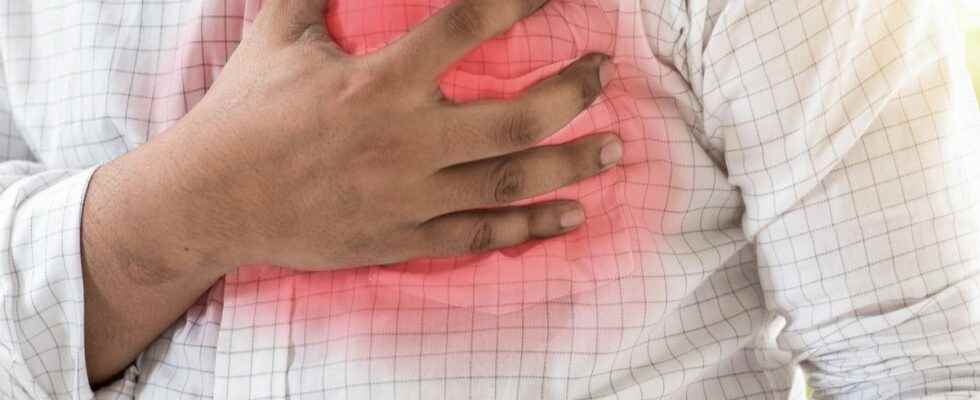Published on
Updated
Reading 2 mins.
The management of recently decompensated heart failure patients is often costly and ineffective. To try to improve it, researchers conducted a study on home telemonitoring, a practice that would reduce the rate of death and re-hospitalizations.
Cardiac decompensation: what are the signs?
Cardiac decompensation is a serious complication of heart failure. It occurs when the body can no longer compensate for the deficiencies of the heart muscle.
Different symptoms – which vary depending on the affected heart area – can then occur:
- Shortness of breath;
- Edema of certain parts of the body (especially the lower limbs);
- Loss of consciousness ;
- Change in pulse;
- Palpitations.
In case of decompensation, the patient should immediately be taken to the emergency room.
13.5% re-hospitalization and 15.9% death
In this study conducted by Pr Rémi Sabatier and the association for the improvement of the management of heart failure in Normandy, the method showed promising results: in patients who used home telemonitoring the most, one-year re-hospitalization rates for heart failure were 13.5% (vs. 27.8%) and two-year mortality rates were 15.9% (vs. 26.8%).
A total of 659 participants were remotely monitored for at least 3 months. Rehospitalization and mortality were documented at 12 months and 5 years.
For the researchers, these results confirm the first data from a pilot study, dating from 2012. It had in fact shown a 46% reduction in re-hospitalizations at 1 year in patients following this program for 3 months.
Consult a cardiologist online
A daily health questionnaire
“The specificity of SCAD (Clinical Monitoring at Home) is to combine self-monitoring, medical telemonitoring and therapeutic support for the patient. This digital innovation allows optimized monitoring of the patient in complete safety in order to maintain the stability of the disease and avoid acute decompensations”specifies Rémi Sabatier, cardiologist at the University Hospital of Caen and associate professor in telemedicine at the University of Caen-Normandy.
Patients must nevertheless complete a health questionnaire daily, in order to provide the data necessary for the tool.
Interesting fact: in the event of acute decompensation, an alert sounds. A nurse specializing in heart failure, a general practitioner or a cardiologist take care of the patient immediately. This saves precious time for the patient, which can prove to be vital.
It remains to democratize the tool everywhere in France:
“The objective of this study is to contribute to the deployment of remote monitoring in France thanks to the contribution of new data, thus responding to a challenge of improving public health policies”says the study.
